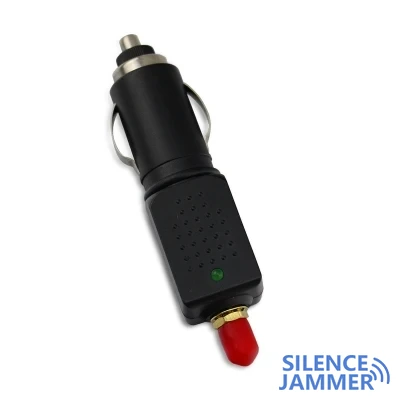- Federal Communications Commission Regulations
- Governed by federal law
- Prohibition on sale and possession
A signal jammer is a device used to interfere with wireless communication. Its function is to cover and suppress the target signal by emitting electromagnetic waves of a specific frequency, making it impossible to communicate normally. However, in the United States and many other countries, there may be legal implications for possessing and using signal jammers. This article will explore the legality and related legal provisions of carrying signal jammers in the United States.

U.S. law
According to the Federal Communications Commission (FCC), it is illegal to use or carry a signal jammer without authorization. Under the Communications Act, the unauthorized use of a signal jammer to interfere with another person's wireless communications is a serious offense and may result in fines, imprisonment or other legal sanctions.
In the United States, the management and regulation of signal jammers is strictly regulated by federal law. These laws are mainly enforced and supervised by the FCC, and violations of the laws will face severe legal sanctions.
The sale, manufacture, possession and use of signal jammers in the United States is prohibited unless specifically permitted by the FCC. Violations of these regulations may result in substantial fines and criminal charges.
Legal Consequences
- Civil Penalties
- Criminal Charges
- Confiscation of equipment
The unauthorized use or possession of signal jammers may result in civil fines from the FCC. The amount of the fine depends on the severity of the violation and can be thousands of dollars.
In serious cases, violating signal jammer laws can result in criminal charges and even jail time. Actions involving serious interference or damage to wireless communications systems may be treated as criminal offenses.
The FCC has the power to confiscate illegally possessed or used signal jammers and take other legal sanctions against violators.
Lawful Use and Authorization Exceptions
- Special permission
- Government and Military Use
Under certain circumstances, a person or institution can apply for a special license from the FCC to legally use or carry a signal jammer. This often involves specific research, testing or safety applications.
Government and military agencies may use signal jammers in specific situations to maintain national security or perform specific missions. In this case, authorization and permission from the FCC or other relevant agencies are usually obtained.
Carrying a signal jammer is illegal in the United States and can result in serious legal consequences, including civil fines, criminal charges, and device confiscation. However, there are exceptions under certain circumstances where the FCC can authorize the use of signal jammers. Therefore, individuals and institutions must understand and comply with relevant legal regulations before using or carrying signal jammers to avoid violating the law and incurring legal liability.


